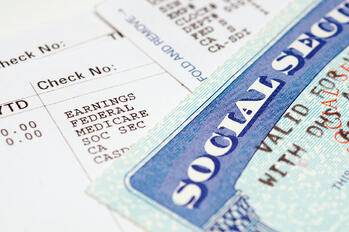Published on: December 3, 2014
 Dealing with the Social Security Administration (SSA) and disability benefit applications can be a frustrating process for disability victims in many cases, due largely to misinformation, or a lack of information altogether. When it comes to the SSA and your benefits, what you don’t know about processing, applications and beneficiary decision-making may surprise you; in fact, you could be costing yourself benefits without even knowing it.
Dealing with the Social Security Administration (SSA) and disability benefit applications can be a frustrating process for disability victims in many cases, due largely to misinformation, or a lack of information altogether. When it comes to the SSA and your benefits, what you don’t know about processing, applications and beneficiary decision-making may surprise you; in fact, you could be costing yourself benefits without even knowing it.
Applying for benefits through the SSA and receiving those benefits to compensate for a disabling condition is rarely easy… however, with the right information (and maybe a little professional guidance), you can get the maximum benefits possible for your disability.
1.) You Can Qualify for Both SSI and SSDI
One thing that catches many applicants for disability benefits through the SSA by surprise is that they can, in fact, be eligible for both SSI (Supplemental Security Income) and SSDI (Social Security Disability Insurance). These programs are not exclusive to one another, and applicants meeting the eligibility requirements of both can actually receive both, maximizing their benefits.
The terms to meet for these benefits are very specific, which makes contacting an experienced disability expert that much more important in these cases.
2.) SSA Benefits Are a Lifeline for Millions of Americans
The benefits granted for disability through the SSA account for over 50% of annual incomes for two-thirds of recipients; that’s a majority of total income every year for over 12 million recipients nationally.
Since so many Americans rely on SSDI and SSI to keep their family and quality of life intact, it’s important to limit your risks when applying for disability. Make sure you understand the fine terms and conditions of disability benefits, and gather all evidence effectively before applying.
3.) State Agencies Make the Ultimate Decision
Another factor of disability that may catch you by surprise is that, for the most part, the decision to reward you benefits is not made on the federal level, but rather at the state level.
Local state agencies are the primary decision-makers when it comes to disability benefits through the SSA; understanding what your state requires for disability, and any other local eligibility specifications, can greatly help you get the benefits you need.
4.) Not All Disabilities Are Eligible for Benefits
Another serious factor you may have yet to consider about your application for disability is the SSA’s Blue Book, and whether or not your specific condition classifies as “disabled” under SSA guidelines.
Not all conditions are eligible for SSDI benefits; in fact, disability is quite selective. When reviewing your application, the SSA will go over information in their guidelines to determine if your condition is eligible. One thing to keep in mind at this point is the perceived duration of your disability. To qualify for benefits, your condition must significantly hinder your ability to work (and earn), and be expected to last at least one year since diagnosis.
5.) Working History and SSA Credits Decide Your Benefits
When making decisions on your benefits, particularly the final amount you will be eligible to receive, the SSA will look into your previous working history. Through a series of diagnostic and record tests, the SSA will determine your financial contributions to Social Security in the form of tax credits, from which your benefits will be largely taken.
The SSA requires that you work for a majority of the time leading up to the onset of your disability, and measures such time using the duration of work and recent work tests. In both cases, hiring an outside disability expert can improve your chances of getting the full benefits you are eligible for.
6.) Paperwork is the Name of the Game
During the disability application process, all that paperwork you’ll be succumbed to will essential dictate your eligibility for benefits, and the extent to which you can receive them. From medical documentation and working history records, to incident reports, W-2s and tax returns, the paperwork you submit to support your disability claim is also your primary asset in receiving benefits.
This is why it’s crucial to be thorough with your documentation, or evidence. The more paperwork you have to support your disability claim, the more likely you will be to receive your sought after benefits. Too often, entire applications fail due to one or two important, absent forms.
7.) Hiring a Disability Expert Can be Absolutely Pivotal
For all of the above reasons, one of the secrets to getting full disability benefits is hiring an outside professional to guide your application and direct talks with the SSA.
Expert disability services in your state have the local knowledge, experience and specialized education to optimize your chances for receiving benefits, and can entirely change how the SSA interprets your evidence. You don’t need to deal with the SSA alone; instead, contact a professional disability service today to improve your chances for benefits.

